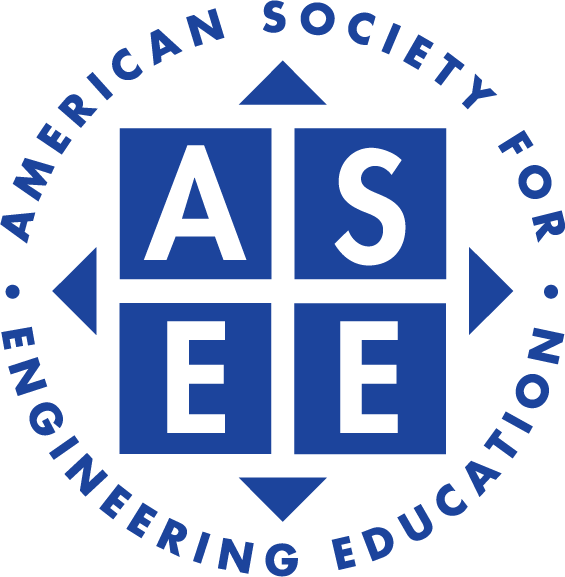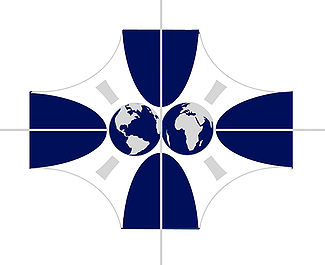- Home
- Advisement Information
- Degrees
- Course Listings
- Meet the Chair
- Department Directory
- News/Events
- Student Resources
- FAQs
186 Jay Street
Voorhees Hall (V-633/V-636)
Brooklyn, NY 11201
Email: compengtech@citytech.cuny.edu
Phone: 718-260-5885
Student Resources

The Computer Engineering Technology Department offers academic advising for students enrolled in any of our two programs, EMT and CET. Incoming students (first semester in the program, including transfer students) must get advising at the New Students Center located in the Namm building (Namm Hall 104). During the second semester, each student is assigned to an academic advisor, a fulltime faculty member. The assigned faculty member would be the academic advisor during all the time a student is enrolled in a Department’s program. This will help to get know each other better establishing a collaborative student-advisor relationship.
We encourage new students to meet their advisor as soon as possible to decide about their courses and create a practical academic plan. To find the list of the Academic Advisors and their offices hours for this semester, click here.
CET Academic Advisement Resources (Quick Start)
- Six Steps Instructions for CET Academic Advisement
- CET Academic Advisement Form
- My Academic Career Planner - Associate Degree
- My Academic Career Planner - Bachelor Degree
Take advantage of all the City Tech's academic advising resources, it will enhance your educational experience.
Who is an Academic Advisor?
An academic advisor is a student's principal point of contact for academic issues that impact progress toward the degree. An academic advisor can assist a student with course planning, registration, academic counseling and can assist in several other capacities.
What is Academic Advisement?
The academic advising’s objective is to help the student reach his/her educational and career goals. This a shared responsibility between an academic advisor and the student. However, it is the responsibility of the student to make decisions about his/her life goals by creating a plan to reach those goals. Academic advisors can assist in this process by helping the student understand options, determine resources and, when necessary, identify alternatives.
Student Responsibilities
- Make advising appointments in advance, especially during busy registration periods.
- Come to appointments on time, and cancel if you cannot attend.
- You can drop by the advisor office during office hours. Find what your advisor office hours are for the current semester, click here.
- Use Degree Audit, which you can access through the CUNY Portal, to review your degree options and requirements. Review requirements you have already completed and plan for those not yet fulfilled.
- Make sure you bring the following items to the meeting with your advisor:
- CUNYFirst ID (or EMPL ID) number
- A printed copy of your Degree Audit
- A printed and filled up copy of the CET Advisement form. Get the form from the Department’s front desk
- Come prepared for appointments by writing down questions/concerns in advance. The last two listed documents above can help you to decide.
- During the advising period for registration, also come with a list of courses you are interested in taking the following semester. Check the following:
- An advisor may provide advice, not make your plans or decisions for you.
- Define a primary plan to achieve your goals but also have an acceptable alternative.
- Become an educated consumer so you can make well informed decisions; ask for guidance and advice from reliable sources, get advice from multiple sources, and when the advice you receive does not meet your goals or "feels" wrong, get a second opinion. Ultimately, all decisions are yours.
- Read all CITY TECH correspondence sent to you via the US mail and email. Respond if required.
- Take advantage of CITY TECH resources that will improve educational experience.
Advisor Responsibilities
- An advisor may provide assistance in helping a student learn how to make practical academic plans and decisions, how to discover a range of options available to the student, based on the student’s stated goals, and how to think through the consequences of the student’s own choices.
- Assist in development of an academic/career plans consistent with student’s stated goals, interests and abilities.
- Provide accurate information about policies, procedures and requirements.
Expected Outcomes of Academic Advising
- Students will know how and where to access accurate information about both CITY TECH and Department policies, procedures and requirements.
- Students will be encouraged to make decisions that support their goals, abilities and aspirations.
- Students will have a suggested practical academic plan to achieve their goals.
This is a list of professional organizations within the field of Computer and Electrical Engineering and Computing. All our students are encouraged to join any of them and attend related organized events.
Association for Computing Machinery (ACM)

ACM, the world's largest educational and scientific computing society, delivers resources that advance computing as a science and a profession. ACM provides the computing field's premier Digital Library and serves its members and the computing profession with leading-edge publications, conferences, and career resources.
Institute of Electrical and Electronics and Engineers (IEEE)

IEEE is the world's largest professional association dedicated to advancing technological innovation and excellence for the benefit of humanity. IEEE and its members inspire a global community through IEEE's highly cited publications, conferences, technology standards, and professional and educational activities.
American Society for Engineering Education (ASEE)

ASEE is a non-profit member association, founded in 1893, dedicated to promoting and improving engineering and engineering technology education. The purpose of ASEE is the advancement of education in all of its functions which pertain to engineering and allied branches of science and technology, including the processes of teaching and learning, counseling, research, extension services and public relations.
Society of Women Engineers (SWE)

SWE founded in 1950, is a not-for-profit educational and service organization in the United States. SWE is the driving force that establishes engineering as a highly desirable career aspiration for women. SWE empowers women to succeed and advance in those aspirations and be recognized for their life-changing contributions and achievements as engineers and leaders. SWE has over 26,000 members in nearly 100 professional sections and 300 student sections throughout the United States.
Society of Hispanic Professional Engineers (SHPE)

SHPE was founded in Los Angeles, California, in 1974 by a group of engineers employed by the city of Los Angeles. Their objective was to form a national organization of professional engineers to serve as role models in the Hispanic community. Social networking was the key basis for the organization. SHPE quickly established two student chapters to begin the network that would grow to encompass the nation as well as reach countries outside the United States. Today, SHPE enjoys a strong but independent network of professional and student chapters throughout the nation.
Graduates from the BTech program in Computer Engineering Technology at CITY TECH automatically qualify for direct admission to the NCEES Fundamentals of Engineering (FE) exam. The FE exam is the first of two examinations that engineers must pass in order to be licensed as a Professional Engineer (PE) in the United States, the second one is the PE exam. The FE exam is open to anyone with a degree in engineering or a related field, or currently enrolled in the last year of an ABET-accredited engineering degree program. The exam is administered by the National Council of Examiners for Engineering and Surveying (NCEES). The FE is a computer-based exam that is administered year-around.
To learn more about the FE exam explore the following links:
Articulation Agreements
- Hostos CC: A.S. Electrical Engineering
- LaGuardia CC: A.A.S. in Computer Technology
- Queensborough CC: A.S. in Electrical Engineering
- Queensborough CC: A.A.S. in Computer Engineering Technology
- Queensborough CC: A.A.S. in Electronic Engineering Technology
Videos
Introduction to AppInventor (by Dr. Mendoza)
What is a computer? (by Dr. Mendoza)
What are variables? (Dr. Mendoza and Prof. Wu)
What is control flow? (by Dr. Reyes)
What are functions? (by Dr. Mendoza)
Strings (by Prof. Wu)
Tutorials and Course Material
- iPractice: A self-assessment system for computer programming concepts (by Dr. Mendoza)
http://mz-unbound.com/ipractice/ - Download iPractice for Android
http://mz-unbound.com/ipractice/download/iPractice.apk - Lectures for EMT1111: Logic and problem solving
http://openlab.citytech.cuny.edu/1111f13/schedule/ - Lectures for CET3510: Microprocessor System Technology (by Dr. Reyes)
http://openlab.citytech.cuny.edu/cet3510f13/lectures/ - Lectures for CET3640: Software for Computer Control (by Dr. Reyes)
http://openlab.citytech.cuny.edu/cet3640f13/lectures/
General Education Resources
- OpenLab at City Tech
http://openlab.citytech.cuny.edu/ - The College Learning Center
http://websupport2.citytech.cuny.edu/learningcenters/
